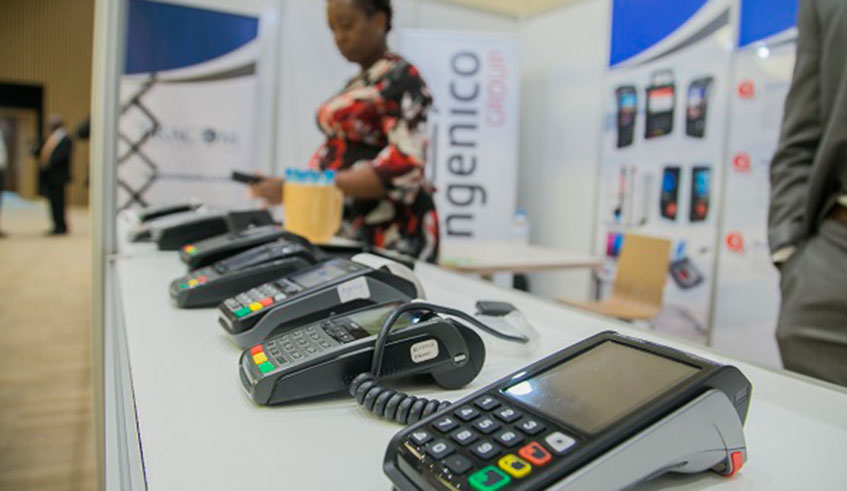

The Central Bank will in October launch its third cashless payment system awareness campaigns in a bid to drive uptake.
This is in line with government’s ambitions of a cashless economy.
This will be the third campaign by the central bank and stakeholders to push through with efforts toward a cashless economy since 2015.
A review of data over the previous years show growth in uptake of cashless payment.
Stakeholders have also cited persistent challenges that have made cashless payments unfeasible.
According to the National Bank of Rwanda statistics, the number of transactions that were conducted through Point of Sales rose to 2.2 million as of June this year from 1.5 million in June last year.
The value of transaction through POS devices in the first six months of 2019 stood at Rwf100 billion.
Among the major drivers were the introduction of new types of Point of sales devices which as of June this year stood at 14,000 in total and expected to grow in the course of the year.
The number of traditional point of sales rose of 3046 as of June this year, the Central Bank says.
Mobile financial services remain the main driver of cashless payments.
At least six million mobile transactions valued at Rwf2,058 billion were carried out in the first half of 2019.
However, despite the increase in volumes and values of mobile financial services, further review of the data shows that a majority of it goes to airtime purchases, cash in and cash-out (Money transfers).
With that, a large portion of the transactions do not fully constitute as cashless payments but transfer platforms.
A review of a number of Kigali’s businesses and market places revealed a preference for cash especially among small and medium enterprises.
In interviews with The New Times a number of merchants said that often, they found that in most instances, cashless payments drove up the cost of operations.
For instance, a popular restaurant in Kisementi, the manager, Geraldine Umutesi said that clients paying via mobile money are required to add withdrawal charges.
This cushions the outlet from incurring additional costs but translates to the client paying a charge slightly higher than was consumed.
Umutesi said that this can be addressed if telcos eased the process enabling SMEs access pay-bill numbers that would not require clients to include withdrawal charges.
In other instances, merchants said that the cost of POS transactions which is about 2.5 per cent of each transaction value was relatively high considering that they also incur costs to run the respective bank accounts.
Further merchants said that the timeline between the transactions and when they can access their money was over 24 hours for most banks which they said is not ideal for SMEs who have small capital margins.
Commenting on the oncoming awareness initiative, Peace Uwase, the Director for financial stability at the central bank, said that they will be seeking to make on progress and gains made so far in the aspect.
Among the challenges that they have so far dealt with includes connectivity issues as well as delays in reversal of funds after both POS transactions.
"There was the issue of the types of the devices, some were 2 G enabled and had connectivity challenges. They have since adopted 3G devises to increase uptime. Because of a lot of construction works ongoing, the high rise buildings were interrupting with network and connectivity in some areas. There were also concerns of customer refunds in the event of botched transactions hence revising regulations,” he said.
The central bank this year issued new guidelines and regulations to banks operating in Rwanda governing the reversal of funds after failed ATM transactions.
On failed transactions, banks are expected to reverse funds immediately if a client used an ATM of their (clients’) and not more than 5 days if the client used an ATM or POS of another bank.
A failed transaction is whereby money is deducted from a client’s account but they do not receive it.
Uwase said that in the campaign to be rolled out, they will target multiple payment models as opposed to a specific platform as well as bring onboard financial institutions and telcos.
She said that aware of the concerns of cost of use of the payment systems as well as perceptions, they were looking at models that could be relevant. This could eventually make it more expensive to use cash as opposed to currently when merchants find it more expensive.
In countries such as India, government motivates uptake of cashless payments by giving tax rebates to businesses that declare about 50 per cent of their revenue via cashless payment options.
editor@newtimesrwanda.com


